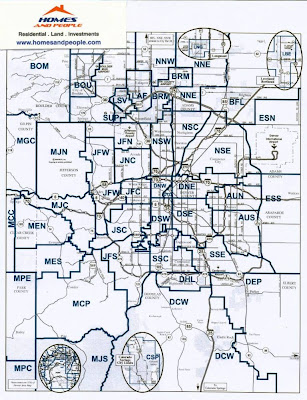Centennial is a Home Rule City by a 2-1 margin
The unofficial results from the June 10 mail-in ballot show the measure to institute Centennial's proposed home-rule charter passed resoundingly by a greater than 2-1 margin."My biggest comment is woohoo!" said an elated Cathy Noon, chair of the elected Centennial Charter Commission, which drafted the municipal constitution."I just want to say this is the most wonderful news for all of us," she told a roomful of cheering commissioners, city officials and other home-rule supporters at a victory party.The mood there already was ecstatic by 7:30 p.m., when initial results showed the charter passing by some 7,000 votes - a far cry from the razor-thin 316-vote margin that created the charter commission last November.Many on both sides of the contentious debate over home rule had predicted a close call either way, and few were certain that the charter would pass at all."I thought it would be closer than this," Noon said. "But I started to get a feeling when we were talking to people at grocery stores and so forth. They were like, 'Why wouldn't we do this? It seems very logical.'"Until this week, Centennial, with 103,000 residents, had been by far the largest city in Colorado without a home-rule charter. The new status will allow the 7-year-old city flexibility in everything from sales-tax collection to dog-breed restrictions.Centennial was incorporated by voter approval in 2000 as a statutory city limited by what is specifically permitted for cities in state law. Even a home-rule city has its limits. It cannot violate the state or U.S. constitutions. A home-rule city cannot in Colorado raise taxes without voter approval, but it can refer proposed new taxes to the voters, per the Taxpayers Bill of Rights.As a city constitution, the charter brings a certain permanence to Centennial's government structure with some modifications. It also redesignates the city's four geographic wards as districts and eliminates the elected clerk and treasurer positions.The elected city council cannot change the charter. The document only can be altered by another vote of the people."A huge relief" is how commissioner Sue Rosser described her reaction to the news that Centennial had overwhelmingly passed its charter."I have such renewed faith in the people to be able to understand a pretty complex issue," Rosser said. "We all love our city. Everybody who voted, no matter how they voted, loves their city. But to vote yes, you had to understand something very complex."According to city council member Ron Weidmann, what really matters are the actions that the council winds up taking with the city's newfound autonomy."It's not a perfect document, but it's a fantastic document," he said. "The price of freedom is still vigilance and you still have to keep your eyes on the council."Council member Rebecca McClellan thinks a home-rule city's ability to collect sales tax directly, instead of relying on the often overextended Colorado Department of Revenue, should be priority No. 1."I think as fast as we can address that, we need to put it on the agenda right away," she said.Many on the 21-member charter commission had spent much of the last three months campaigning for the charter in a grassroots effort that reached virtually every residential neighborhood in a city that stretches from Littleton to Aurora.There also was significant opposition from No On Centennial Charter, which led a campaign against home rule. Opponents included two city council members and the elected clerk and treasurer. Former state Senate President John Andrews, a Centennial Republican, voiced automated "robo-calls" urging a no vote on a charter that opponents said placed too much power in the hands of city leaders.Chris Raab, No On Centennial Charter's chairman, was not surprised by news that the charter had been approved."I was expecting that to be the outcome," he said. "We didn't have the resources to properly get the word out about what we felt were the dangers."Council member Betty Ann Habig, who opposed the charter, credits the charter's success to the proponents' funding and organization and the use of city resources. At this point, Habig says she is taking a wait-and-see attitude, but is hopeful that her concerns about the document's reach will prove to be unfounded."It should be a very interesting adventure," she said. "When we first incorporated, there were a lot of promises made that did not materialize, but I respect the will of the voters, of course. It passed. We move on." The activist council member has not discounted the idea of attempting to amend the charter by voter referendum, but says she has no immediate plans to do so."I'll evaluate everything that comes before the desk to come up with solutions if we need to, but I don't have any plans to go out and petition to amend the charter," she said. Per the charter, elected city treasurer Susan Bockenfeld and city clerk Linda Gawlik will be forced to step down when their terms end in January 2010. Appointed staff will fill their functions.Some charter commissioners have said publicly they hope the two officials voluntarily step down before then. Gawlik did not return calls seeking comment by press time, but Bockenfeld said she intends to complete her term as elected treasurer."I will continue to serve on the audit committee and the investment committee and review financial reports and do everything I've been doing," she said. The charter goes into effect as soon as the final vote becomes official, which is expected to happen this week.
Artical from "Centennial Citizen"



Comments